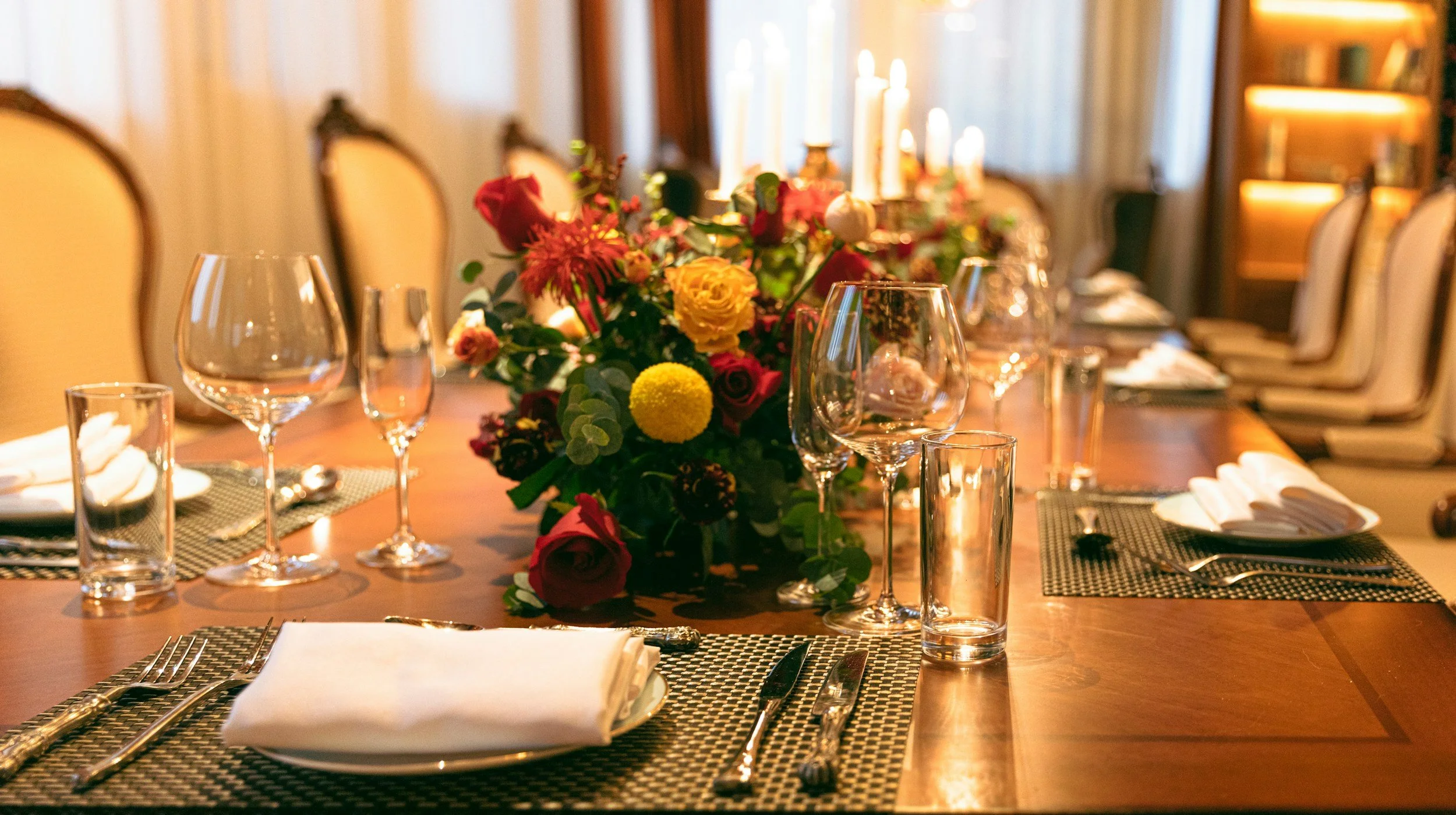Thanksgiving prompts us to count our blessings–and many of us know the research showing that gratitude practices can lift our mood and improve our health. All of that is good. But if we’re being honest, gratitude may not be the first thing on our minds this year.
More likely, we’re thinking about how to survive the dinner table.
We are rehearsing ways into a conversation, or ways out. Or maybe we’re ignoring what may come and going in blind. Some of us have already had the thought: I love them, but I cannot have this conversation again. It's tempting to think that a facade of pleasantries or hiding in the kitchen will get us through the holiday.
Instead of psyching ourselves up for–or out of– these encounters, I suggest we approach Thanksgiving with a different goal in mind: hospitality.
Not in the Instagram sense of the perfect table and perfectly plump pumpkin pie. And not the gritted-teeth version of hosting where the day becomes an endurance test. I mean hospitality as a way of seeing—welcoming people as if they belong, creating ease rather than edge, making room for the whole person in front of us.
You don’t need to be the one roasting the turkey to practice it.
You may be baking, carrying takeout to a hospital room, or finding your place at a crowded table. But hospitality appears in quieter, more personal ways. It begins by noticing the other first: how we seat people, how we introduce them, how we draw in the guest who feels out of place or the cousin who traveled across the country and doesn’t quite know where to stand.
Hospitality is regard, the habit of making room for the person in front of you. You don’t need a turkey for that. You need attention, a willingness to be surprised, and the humility to know we don’t know the whole story. And it’s not a soft ideal. It’s countercultural. It’s how families heal, how friendships deepen and strangers become teachers.
This year, hospitality will matter most in the moments we fear:
When the political remark lands.
When the old debate begins to stir.
When your first reaction is: Please, let’s not go there again.
That’s when our own deeper work begins—when our internal question shifts from How do I escape this? to How can I welcome this person?
If someone says something that grates, try:
“Help me understand why you feel that way.”
If they share their story, acknowledge it honestly:
“I hear you. I can appreciate why you think that.”
And if you feel the need to offer a different view, ask first:
“Would you be open to hearing another perspective?”
If the answer is no, let it go. Thanksgiving is not the day to win the argument. It is an opportunity to recognize the person.
The deepest hunger at any Thanksgiving table is not for food but for the simple dignity of being welcomed as we are. We can choose to enter this Thanksgiving with that aim–to meet others with the genuine regard we hope to receive.
A friend of mine, a nurse, once found herself in a workplace thick with gossip. She chose to counter it. She listed each colleague on her shift and wrote down their strengths with specific anecdotes to match. That list became her shield against negativity. It helped her draw out the best in them and changed how they responded to her in turn.
The power of hospitality lies in our agency, our choice to show up differently. It is the wisdom and moral freedom to stay curious, patient, and generous even when the conversation gets complicated.
And in its own way, hospitality is deeply American. Our experiment in ordered liberty depends upon people of different backgrounds, beliefs, and traditions learning how to live together without retreating or attacking. Thanksgiving is a chance to practice that in miniature.
So this year, instead of resisting that difference, embrace it.
As we prepare the sweet potatoes and bake our favorite pies, let’s also prepare to show up not with a rehearsed rebuttal, but with a desire to welcome the persons in front of us. Ask your cousin what she’s been learning in her new job. Ask your uncle what he’s reading. Ask the brother-in-law you disagree with about what he hopes for this coming year.
Seek their story. Discover something about them worth appreciating.
When we take an interest in someone, especially someone difficult, we discover the heart of Thanksgiving: gratitude that comes from recognizing the gift of the person before us.
Happy Thanksgiving!
Karen E. Bohlin is Director of Wisdom at Work: Revitalizing School Leadership at the Abigail Adams Institute.
For more resources on bridging divides, see The Courageous Dialogue Toolkit: Practical Wisdom for School Leaders–(and All Leaders) coauthored by Karen Bohlin and Barbara Whitlock.

